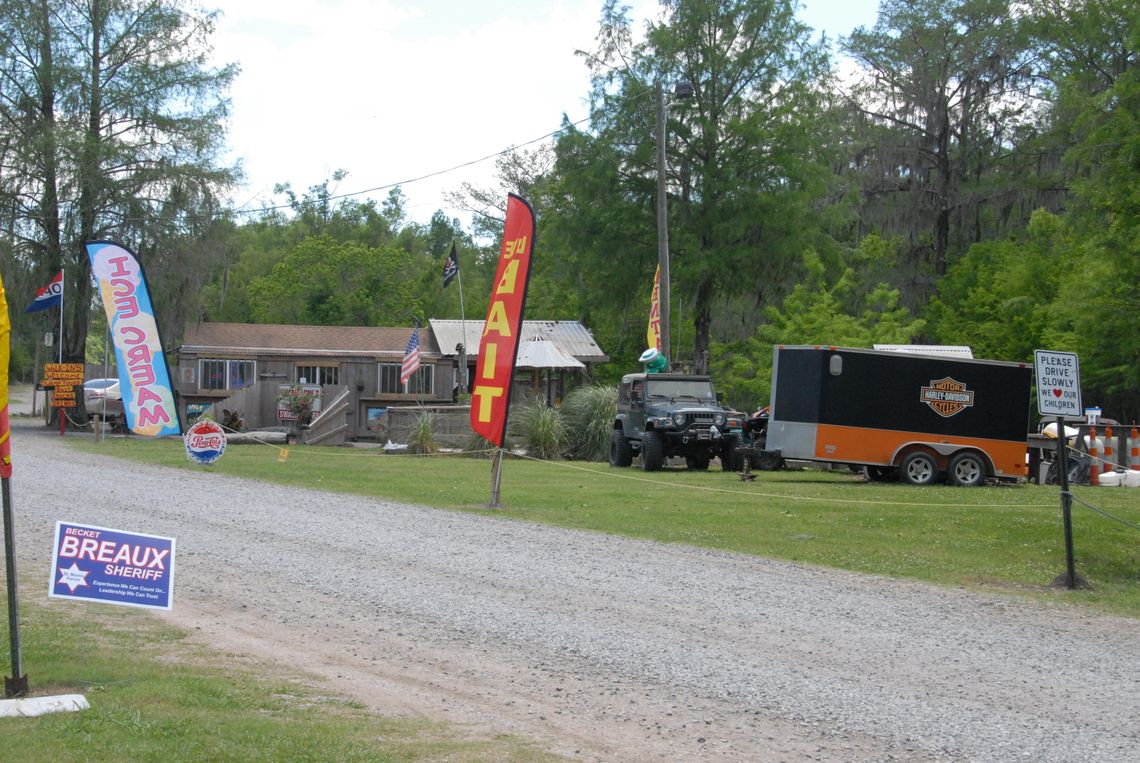
The years-long effort to force the closure of a commercial operation at Lake Martin ended with a surprising decision against the parish by 16th District Court Judge Keith Comeaux on April 8.
Lake Martin is widely recognized as one of the best natural wildlife preserves and most productive bird nesting sites in the state. It has become a mecca for bird enthusiasts, fishermen and paddlers from all over the country and is designated for protection by the Louisiana Department of Wildlife and Fisheries and by St. Martin Parish zoning ordinances.
In 2011, a permit was issued to Bryan Champagne to open a “portable bait shop” on property owned by Ron Masicot at 1076 Rookery Road. Over the ensuing months, construction began on a permanent structure, outbuildings, fences and restrooms. Flags and signs were placed on the lake side, across Rookery Road from that mistakenly-permitted address.
Parish officials admit that the permit should not have been issued for the operation on either side of the road. Commercial operations are not allowed on W2 property zoned such as this. W2 zoning is intended to limit commercial activity on sensitive wetland and wildlife areas.
The language of that zoning classification specifically prohibits construction on those parcels of land and forbids any permanent commercial activity.
The parish could have granted a variance for the portable bait shop, but would not have been receptive to any kind of permanent construction. However, no variance was sought.
When current Parish President Chester Cedars was the legal adviser to parish government, he initiated a civil suit for an injunction against Champagne’s operation. He appeared as a witness for the parish at the hearing. The day afterwards he told the Teche News that the court decision came as something of a surprise. “I thought we laid out a pretty comprehensive case,” he said.
At the hearing, the parish was represented by veteran St. Martinville attorney and current parish legal adviser Allan “Sprinky” Durand. Durand commented later that he thinks the long interval of time Champagne was allowed to operate worked against the parish. “They probably should have responded more forcefully as soon as it became clear what Champagne was doing.” Then president Guy Cormier was not in favor of a vigorous response. Material compiled by the Friends of Lake Martin indicate that the mistaken issuance of a permit does not change zoning ordinances or convey special rights to applicants. It has been ruled in past decisions that applicants have the responsibility to know the laws and abide by them.
Comeaux ruled that Champagne has a defensible “vested interest” in the operation, having relied on the issued permit to invest in the business. He further said that the area’s zoning ordinance was unclear and “Poor at best.”
It is not clear at this time whether an appeal will be sought by the parish.

